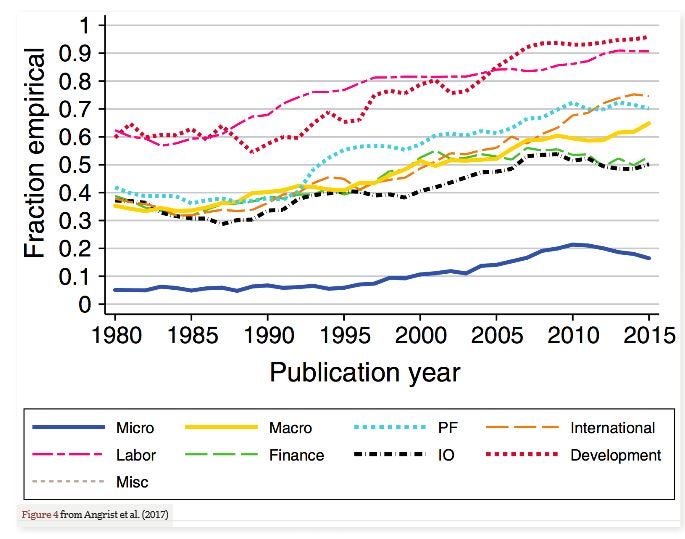- How to teach development economics in 20 minutes to 7th graders – Dave Evans explains his method.
- The “beginning at the end” approach to experimentation – written from the point of view of business start-ups, but could easily apply to policy experiment work too “The typical approach to research is to start with a problem. In business, this often leads to identifying a lot of vague unknowns—a “broad area of ignorance” as Andreasen calls it—and leaves a loosely defined goal of simply reducing ignorance…“Beginning at the end” means that you determine what decision you’ll make when you know the results of your research, first, and let that dictate what data you need to collect and what your results need to look like in order to make that decision.”
- Ben Piper on the use of ICTs to improve reading outcomes in Kenya. Dave Evans comments.
- A fine theorem summarizes the new Melissa Dell and Ben Olken work on the long-run impacts of a Dutch sugar policy in the mid-19th century on local development in Indonesia today.
- VoxDev continues to have fine summaries of recent research and development issues:
- Bidwell, Casey and Glennerster on improving democratic accountability in Sierra Leone
- Konig et al on fragmented civil wars
- Andrabi, Das and Khwaja on using information to improve school performance.
- Baker, Bloom, and Davis on immigration fears and policy uncertainty.
- Advanced workshop on field experiments taught by Don Green on Aug 1-3.
- AEA chart of the week uses machine learning classifications of 135,000 papers published in 80 journals to show the rise of empirical work in development to a level that exceeds that of any other field. [note that this doesn't mean the papers don't also include theory, just that they do include an empirical component]



Join the Conversation